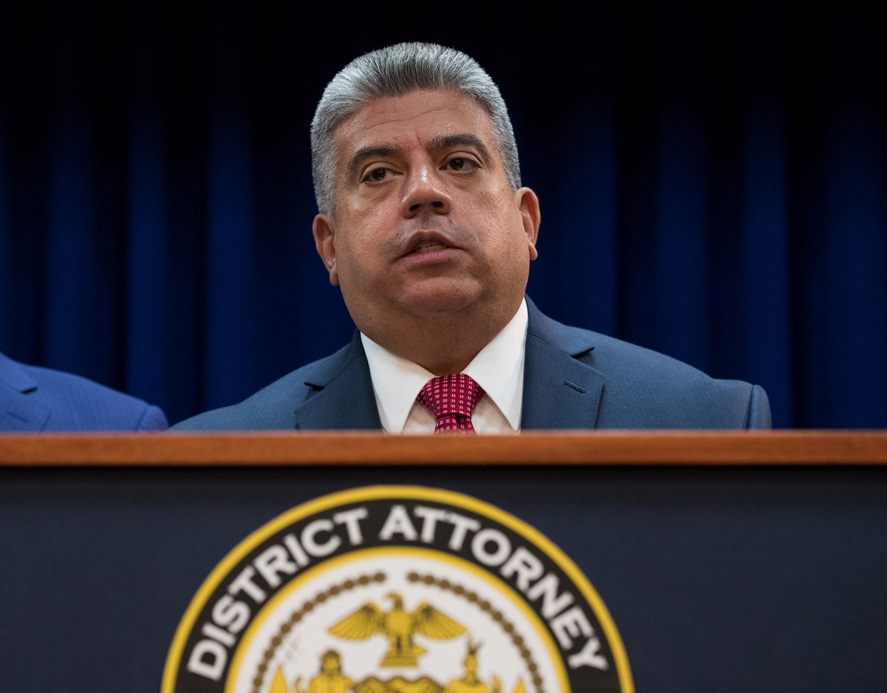

By Claudia Gutierrez
BROOKLYN – On Thursday, July 9, 2020, the Kings County District Attorney’s Office along with The Innocence Project and WilmerHale Law Firm, released a 100-page report titled “426 Years: An Examination of 25 Wrongful Convictions in Brooklyn, New York,” that details cases reviewed by the Kings County Conviction Review Unit (CRU), involving 25 individuals wrongfully convicted and since exonerated.
The publication of this report comes at a time when thousands of people across the country continue to show their frustration with our nation’s criminal justice system.
Brooklyn District Attorney Eric Gonzalez said he released the report to “build community trust, especially now, when so many people in this country are expressing anger and despair with the system, we must reckon with and be transparent about the mistakes of the past.” He said he also wanted to “share the methods, analyses and findings of the CRU with others around the country who are engaged in this critical work, and with the public at large.”
FITZGERALD CASE – 24.5 YEARS BEFORE EXONERATION: One of the 25 individuals whose case was recounted was that of Nathan Fitzgerald (the pseudonym used in the report) who was charged with second-degree murder in 1989. Fitzgerald was  sentenced to 25 years to life in prison and ended up serving 24.5 years before he was exonerated of the conviction following review from the Kings County CRU.
sentenced to 25 years to life in prison and ended up serving 24.5 years before he was exonerated of the conviction following review from the Kings County CRU.
Fitzgerald was accused by the key witness in the case of shooting a man on a sidewalk in Brooklyn, New York. The witness identified Fitzgerald as one of the two perpetrators who shot the victim.
However, Fitzgerald refuted this claim by telling the assistant district attorneys involved in the case that he was in Florida with his family at the date and time of the murder. The defense in the case even presented the court with various crucial documentation including plane tickets, hotel reservations, a video, and testimonies from Fitzgerald’s family members to substantiate his alibi.
But, despite the evidence presented by the defense, Fitzgerald was found guilty of second-degree murder. Before the sentencing took place, the key witness took back her testimony in a formal written statement made under oath.
After this unexpected statement from the witness was presented to the court, the defense then called for a separate evidentiary hearing to challenge the guilty verdict made against Fitzgerald. At the hearing, the key witness said that they had lied about seeing Fitzgerald shoot the victim because they were caught sleeping in a stolen van and feared that they would be arrested for it.
Even after the witness confessed to falsely accusing Fitzgerald of murder, the judge did not find the confession convincing enough to overturn the jury’s previous verdict and sentenced Fitzgerald to 25 years to life in prison. The sentence meant that he would have to serve 25 years in prison before being eligible for parole.
When the Kings County CRU looked into this case, they found evidence of a receipt from a Florida hotel that proved that Fitzgerald was in Florida the same day and time of the murder. The CRU was told by the defense that this item was never presented in the trial.
After careful review of the case, the CRU concluded that Fitzgerald was victim to a wrongful conviction because of two important factors: nondisclosure of favorable evidence and significant witness credibility issues.
These two factors are not only applicable to the Fitzgerald case. As the report shows, the nondisclosure of favorable evidence and significant witness credibility issues both played significant roles in the wrongful conviction of several other individuals mentioned in the study.
To sign up for our new newsletter – Everyday Injustice – https://tinyurl.com/yyultcf9

Two observations: find it interesting, and appropriate, that the DA’s office was part of the “truth be told” narrative…
Second, wonder if this was a jury trial (Fitzgerald)… if so, the narrative goes to something Dad shared with me (he served on several juries, all felony cases)… “If I was accused of a crime, and was guilty, I’d want a jury trial… if innocent, I’d want a ‘bench trial’…”
Given the narrative, it would have been much easier for the judge to act on the recantation info, and reverse himself, than to overturn a jury conviction…
Bill
Your comment makes me very sad on two counts.
1. An individual’s freedom should never hinge on whether they choose, or are adequately counseled on jury vs bench trial.
2. An individual’s freedom should never hinge on how “easy” it is for a judge to overturn an erroneously decided case.
It makes me sad that some commit felonies where their liberty is subject to severe limitation…